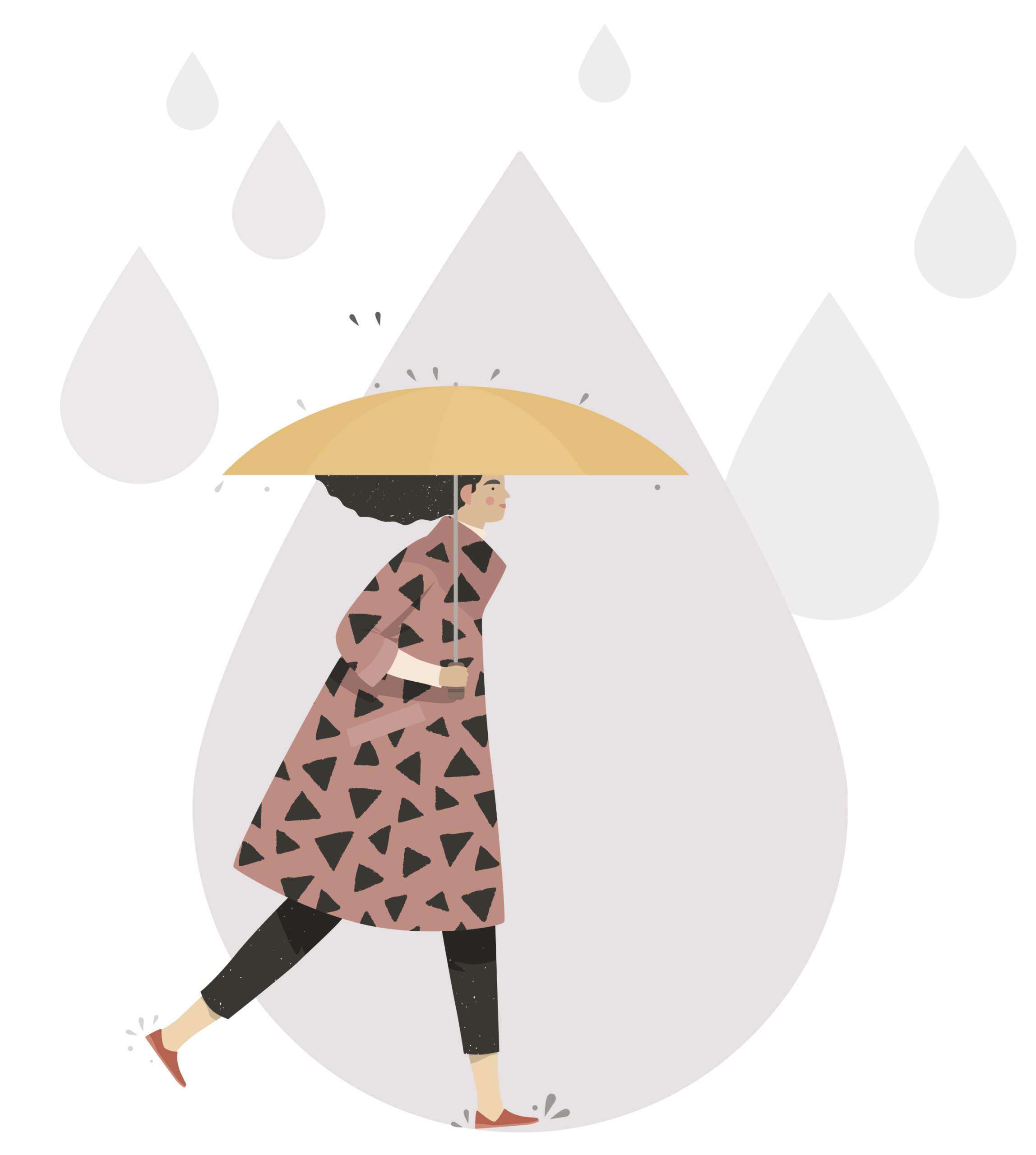Making the most of the winter
PSYCHOLOGICALLY HEALTHY STEPS WE CAN ALL TAKE TO BOOST OUR WELLBEING
Let’s be frank: winter in Lanarkshire can be tough. With the long, dark days and the dreich weather, it’s normal for our mood to dip and our thoughts to turn to gloom.
Our brains are wired to respond to the outside temperature, and to light. Winter can affect our biological clock, how tired we feel, and some of the chemicals in our nervous system that are linked to mood. It makes sense, then, why so many of us feel that winter slump.
There’s no magic fix for winter! But there are small steps we can all take to help get through it in a meaningful way — and that’s what this guide is about. It’s not about trying to switch off difficult thoughts or feelings (because we can’t do that), or trying to change the situation we’re in (because there’s nothing we can do about the cycle of the seasons!) Rather, it’s about connecting with what matters in our lives, trying some new things, and making the most of the winter months. We hope you find these suggestions useful.
First, just notice what’s going on for you, moment by moment
When it’s cold and dark and rainy, thoughts like “I hate winter” or “This is rubbish” are very normal. However, it’s easy to get tangled up in thoughts like this, and that in turn can mean we lose contact with what else is going on around us. As a result, we can miss out on small moments of joy: hugging someone we love, hearing a favourite song, or wrapping up warm in a cosy blanket. Add in all the distractions of modern living and we can easily miss out on so many of the valuable moments in life. Making a conscious choice to connect with the moment can be a powerful thing.
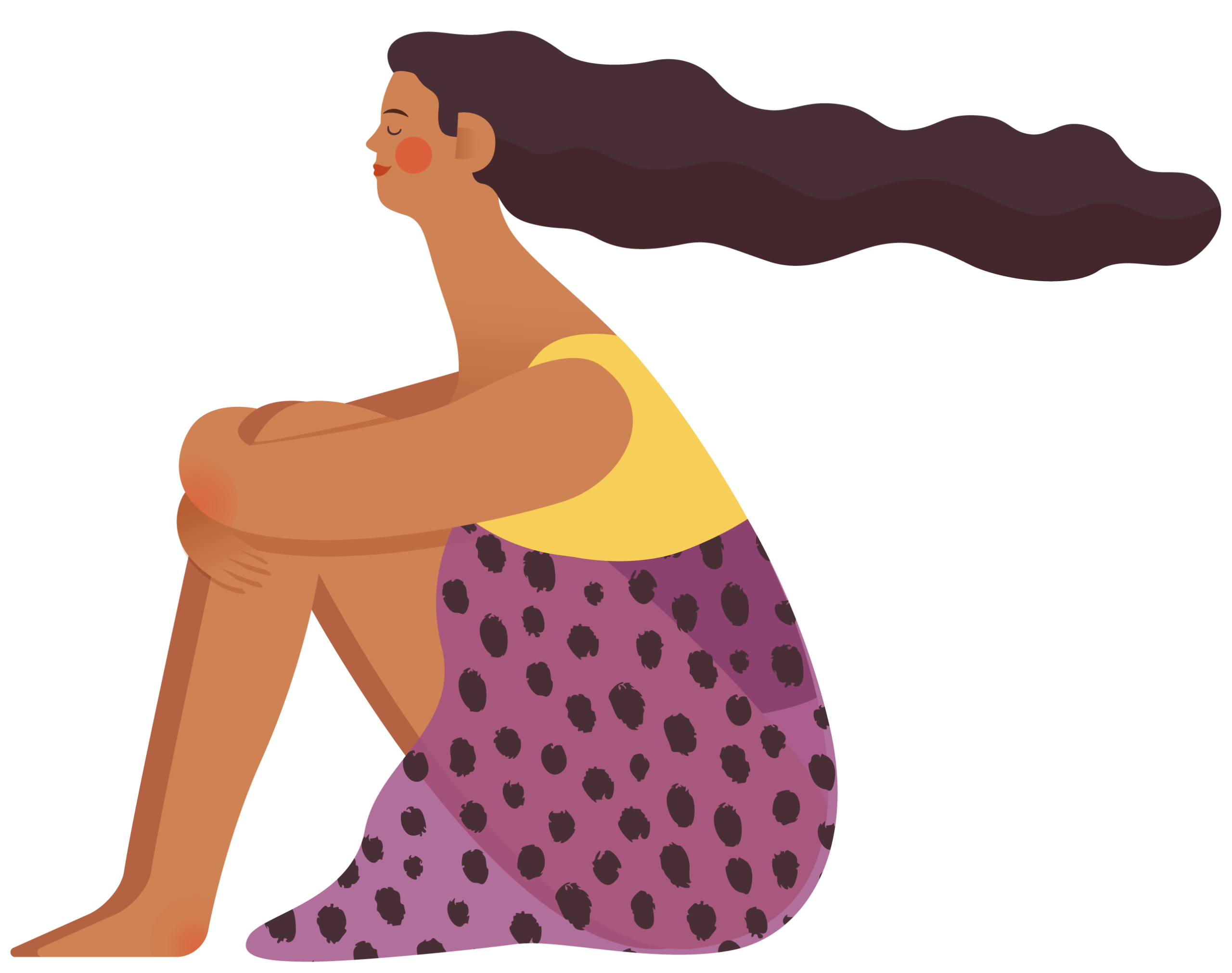
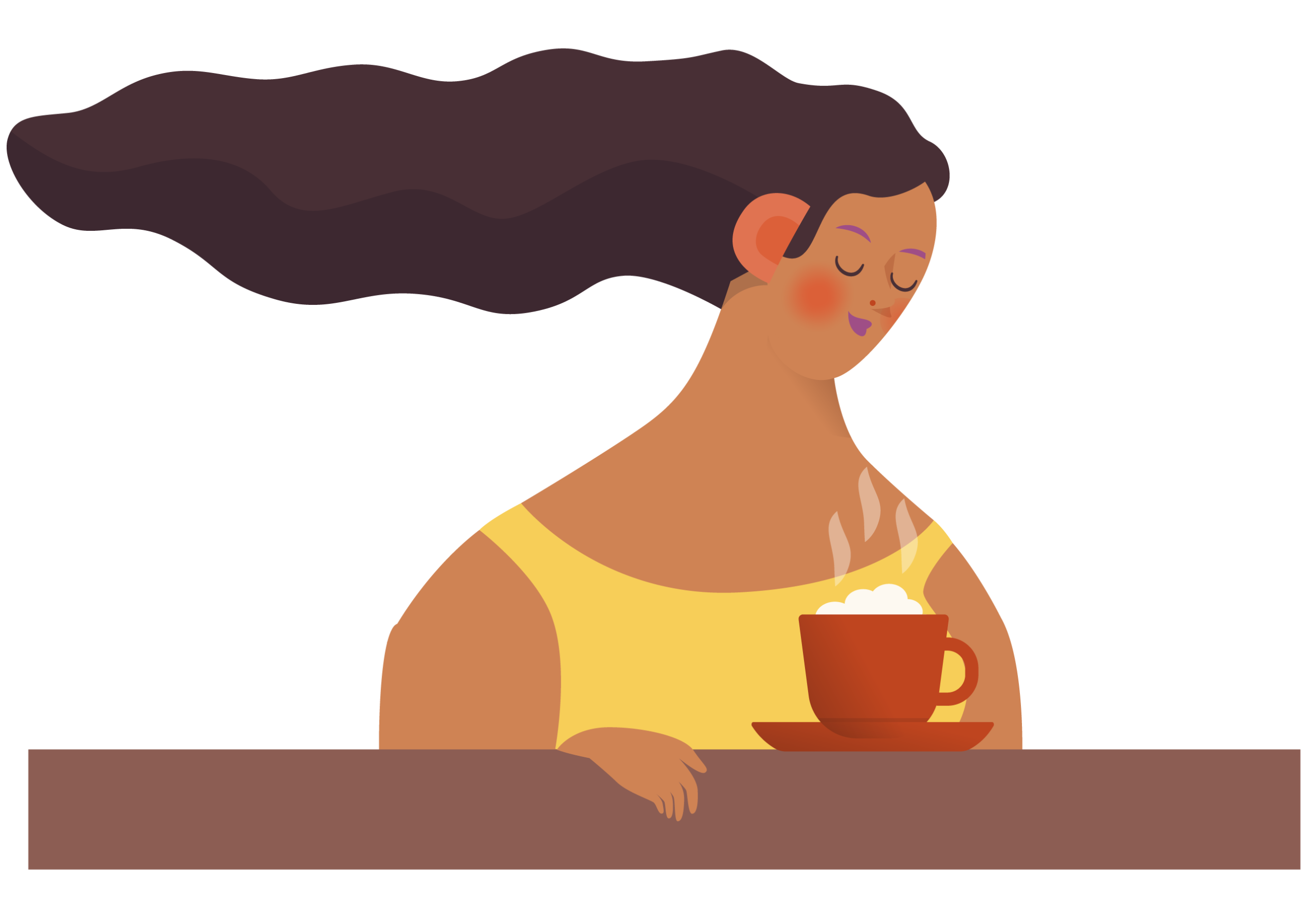
So, what can I do to help notice and connect with the moment?
The key thing is making an active choice to really slow down. See if you can notice what thoughts and feelings are showing up, without judging them, and then try to bring your full attention to what you’re doing. So if you’re walking in the cold, you could simply tune into the feeling of your feet on the ground. If you’re drinking a hot chocolate, notice the warmth of the drink in your hand, and all the lovely flavours you can taste.
Your mind is not going to like this at first. It will give you thoughts like “Yes, but it’s still cold” and “This isn’t enough”. When this happens, see if you can practise notice and return. Say to yourself: “There is my mind, giving me all these thoughts. And here I am, making a choice to try this. What might it be like to keep on gently trying?”
Try doing this regularly — it’s a process that you can keep on gently using. We’re not turning the thoughts off. Instead we’re noticing them, and at the same time making a choice to engage with what we’re doing, moment by moment.
So, what can I do to help notice and connect with the moment?
The key thing is making an active choice to really slow down. See if you can notice what thoughts and feelings are showing up, without judging them, and then try to bring your full attention to what you’re doing. So if you’re walking in the cold, you could simply tune into the feeling of your feet on the ground. If you’re drinking a hot chocolate, notice the warmth of the drink in your hand, and all the lovely flavours you can taste.
Your mind is not going to like this at first. It will give you thoughts like “Yes, but it’s still cold” and “This isn’t enough”. When this happens, see if you can practise notice and return. Say to yourself: “There is my mind, giving me all these thoughts. And here I am, making a choice to try this. What might it be like to keep on gently trying?”
Try doing this regularly — it’s a process that you can keep on gently using. We’re not turning the thoughts off. Instead we’re noticing them, and at the same time making a choice to engage with what we’re doing, moment by moment.

Connect with activities you value, even when you don’t feel like it
It is natural that, when the weather is gloomier, we have less appetite and energy to do things we normally enjoy. Our minds will throw us all sorts of excuses: “It’s too dark. I’ll do it tomorrow.”
However, if we keep waiting for motivation to turn up, we’ll be waiting a long time. Instead, let’s turn it around. If we do things that are meaningful to us, even when our minds are grumbling, we’ll still get something out of it. Psychologists call this “behavioural activation”, but a simpler way of putting it is do more, feel better.
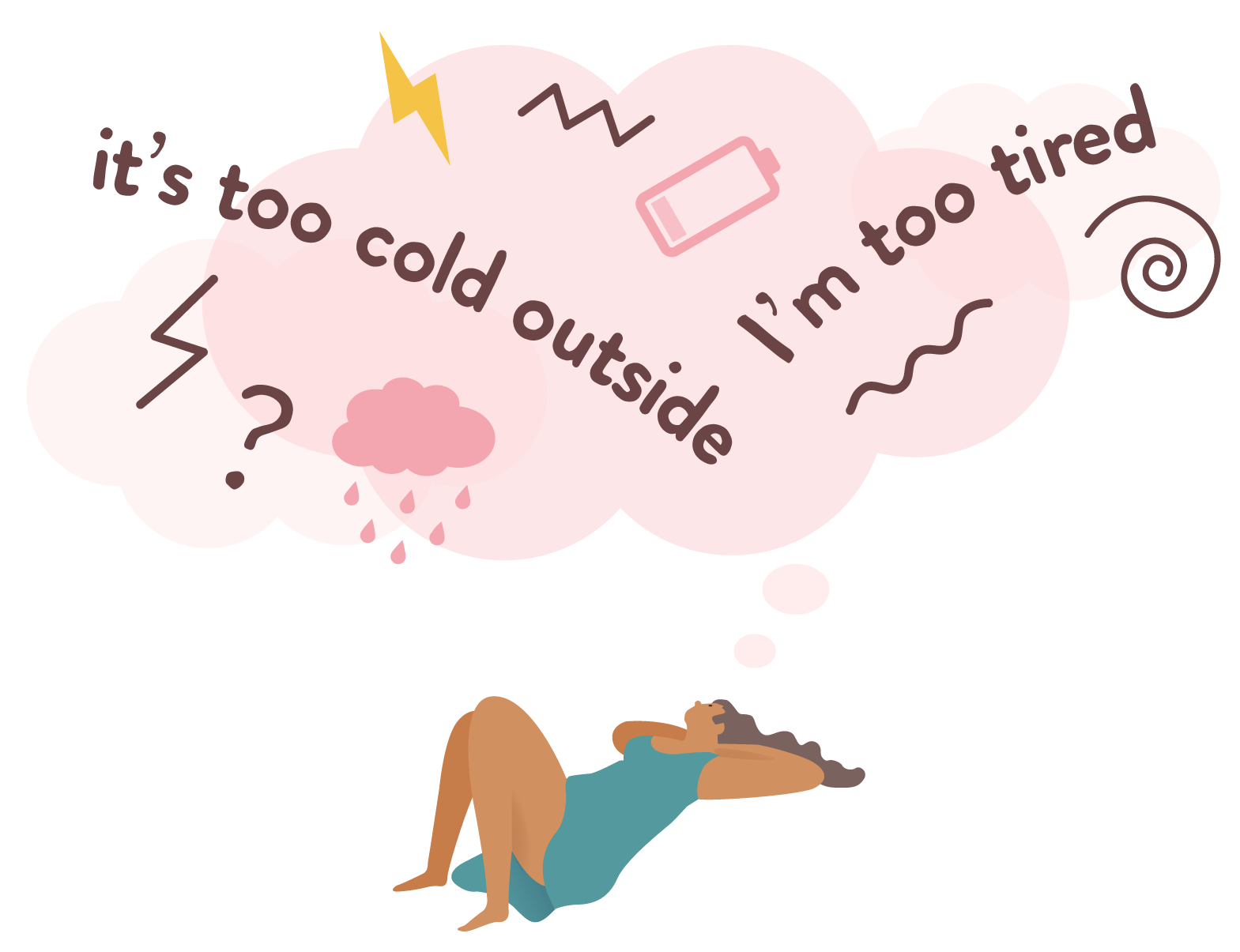

So, what can I do to connect with the things I value?
You could try making a wee list of things you might enjoy, then making a gentle commitment to try one out. It could be as simple as meeting a pal for a chat, or reading a couple of pages of a book.
Pick what you want to do, decide the day and time you’re going to do it, and set a reminder. When the time comes, do what you’ve planned to do, even if you don’t feel like it. That’s the most important bit. You might be surprised by how good it makes you feel. And when difficult thoughts show up (which they will … you’re seeing the theme here, aren’t you?) then see if you can practise notice and return. Bring your focus gently back to what you’re doing, and gently remind yourself why it matters to you.
So, what can I do to connect with the things I value?
You could try making a wee list of things you might enjoy, then making a gentle commitment to try one out. It could be as simple as meeting a pal for a chat, or reading a couple of pages of a book.
Pick what you want to do, decide the day and time you’re going to do it, and set a reminder. When the time comes, do what you’ve planned to do, even if you don’t feel like it. That’s the most important bit. You might be surprised by how good it makes you feel. And when difficult thoughts show up (which they will … you’re seeing the theme here, aren’t you?) then see if you can practise notice and return. Bring your focus gently back to what you’re doing, and gently remind yourself why it matters to you.

Stay active, and watch what you’re drinking
When thinking about our mental health, it can be easy to overlook physical health – yet being physically active is hugely helpful to our mood. But the thought of getting active can feel daunting, especially if it’s something we’re not used to. Once again, our busy minds will give us all sorts of reasons not to do it: “I can’t! What’s the point?”
Starting small can make things feel more manageable — and, as well as the physical and mental health benefits, being active can be a big boost for our self-esteem too. Every step matters, no matter how small it might be.
Keep a wee eye, too, on seasonal over-indulgence. The idea of pouring a drink can be very appealing on a winter night, but we might ask: what else can I do instead?
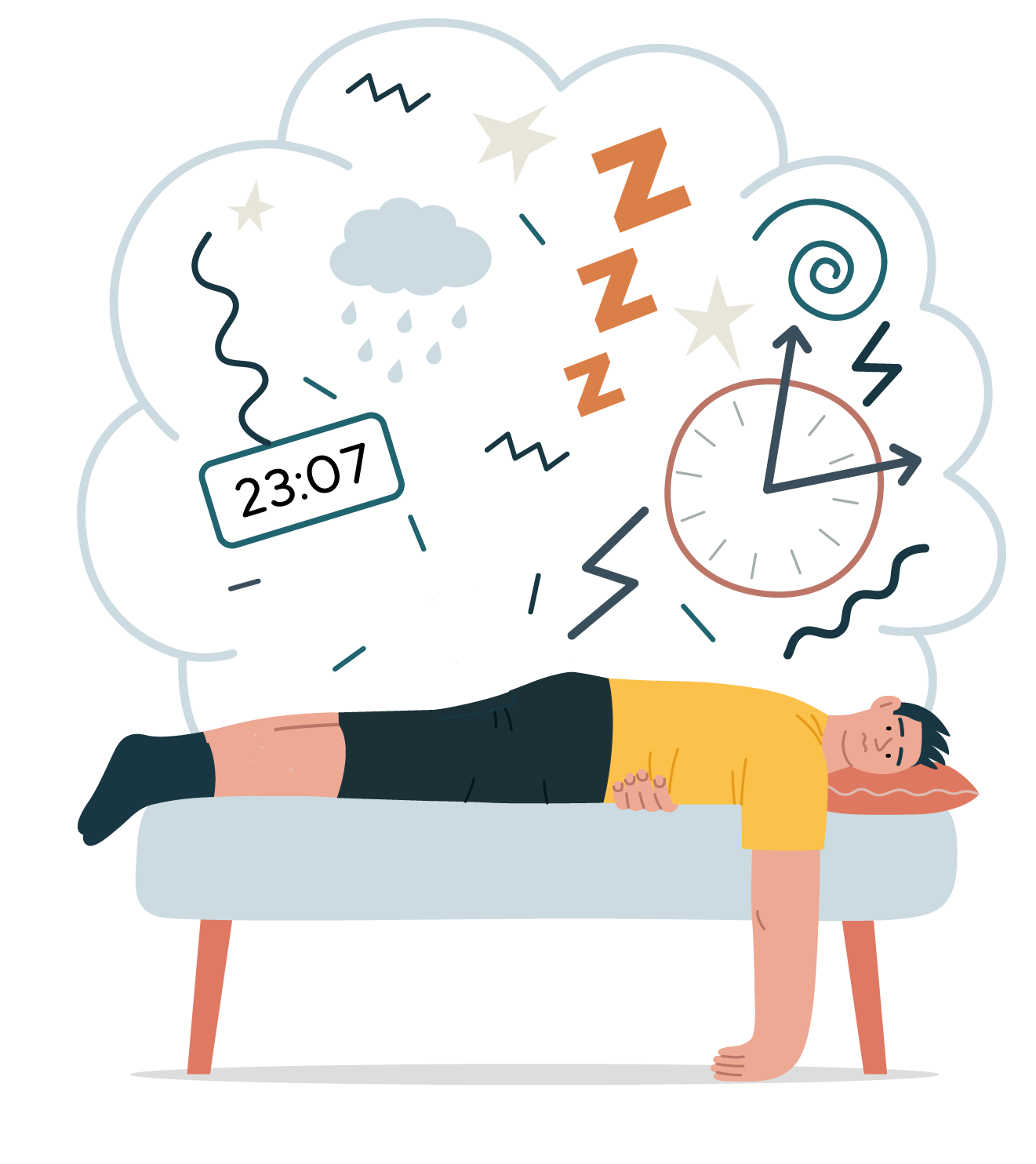
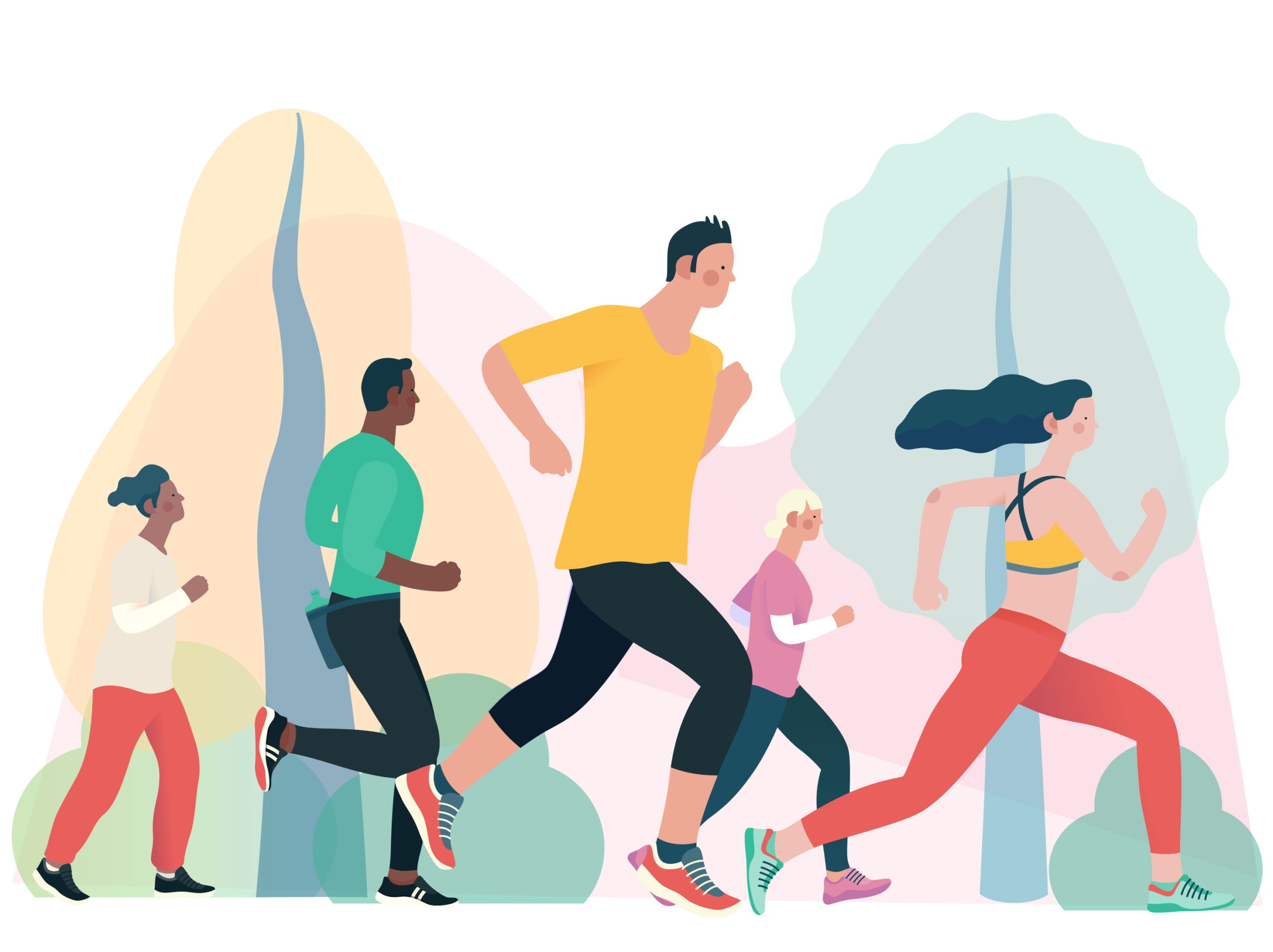
So, what can I do to stay active?
Whether it’s going for a winter’s walk with a warm flask of tea, or trying a new exercise that you think you might enjoy, start small and gently build up your level of activity. When your mind flings you all those reasons not to do it, it’s another good chance to practise notice and return … which of course is another new skill in itself that you’re practising.
When planning how you would like to stay active, please do bear in mind your own physical health and abilities, and follow any specialist advice you might have been given. The NHS Inform website has a whole range of sitting exercises for all ages: click the red link to find out more. If you would like more information about drinking sensibly, our partners at NHS Inform have some useful tips and advice.
So, what can I do to stay active?
Whether it’s going for a winter’s walk with a warm flask of tea, or trying a new exercise that you think you might enjoy, start small and gently build up your level of activity. When your mind flings you all those reasons not to do it, it’s another good chance to practise notice and return … which of course is another new skill in itself that you’re practising.
When planning how you would like to stay active, please do bear in mind your own physical health and abilities, and follow any specialist advice you might have been given. The NHS Inform website has a whole range of sitting exercises for all ages: click the red link to find out more. If you would like more information about drinking sensibly, our partners at NHS Inform have some useful tips and advice.

Looking for more help? Then read on …
This page has been inspired by a range of resources developed by the Universities of Glasgow and Edinburgh. Their Wintering Well project explores what is sometimes called Seasonal Affective Disorder (SAD). The resources on offer include a creative guide and a free online course – just visit the link below to find out more.
Please do note that Lanarkshire Mind Matters cannot vouch for all the content of external websites to which we link.









